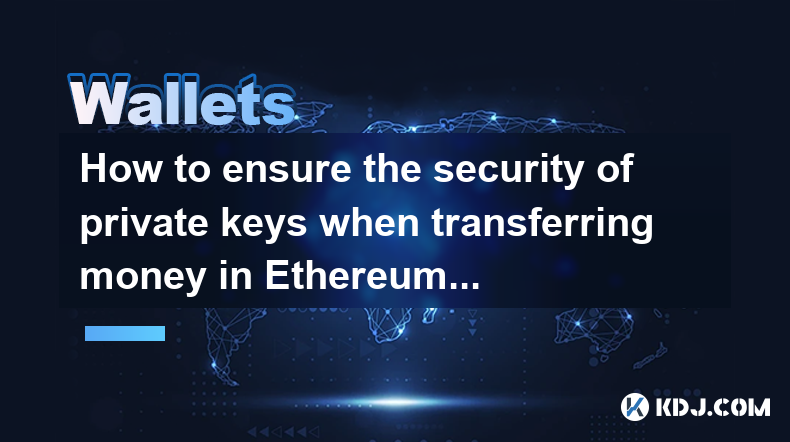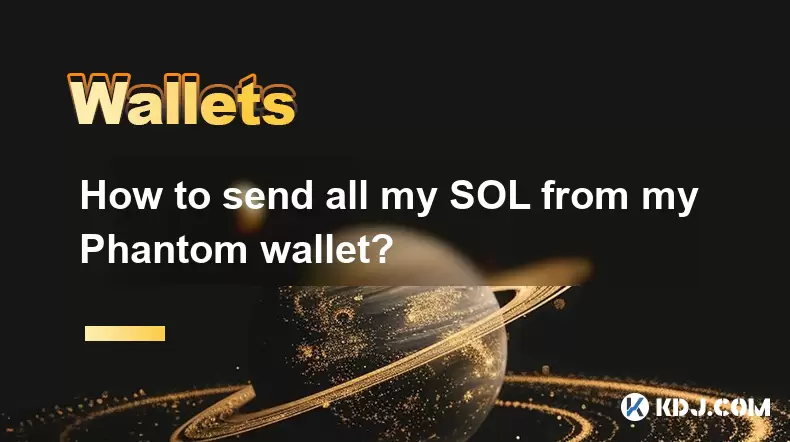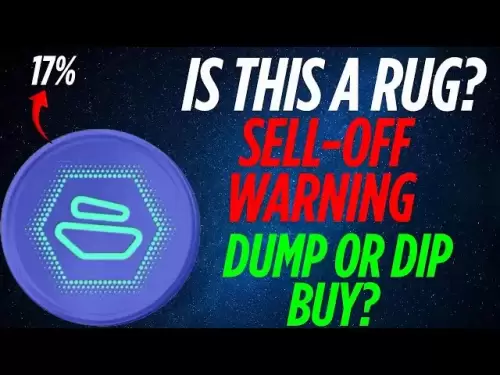-
 Bitcoin
Bitcoin $108,708.8110
0.60% -
 Ethereum
Ethereum $2,561.6057
1.91% -
 Tether USDt
Tether USDt $1.0001
-0.03% -
 XRP
XRP $2.2795
0.57% -
 BNB
BNB $662.2393
1.00% -
 Solana
Solana $153.1346
3.74% -
 USDC
USDC $1.0000
0.00% -
 TRON
TRON $0.2877
0.97% -
 Dogecoin
Dogecoin $0.1710
3.93% -
 Cardano
Cardano $0.5871
1.61% -
 Hyperliquid
Hyperliquid $39.6663
1.68% -
 Sui
Sui $2.9032
0.79% -
 Bitcoin Cash
Bitcoin Cash $496.1879
1.71% -
 Chainlink
Chainlink $13.5807
3.01% -
 UNUS SED LEO
UNUS SED LEO $9.0777
0.61% -
 Stellar
Stellar $0.2514
4.51% -
 Avalanche
Avalanche $18.1761
1.86% -
 Shiba Inu
Shiba Inu $0.0...01173
1.72% -
 Toncoin
Toncoin $2.8010
-4.23% -
 Hedera
Hedera $0.1594
3.21% -
 Litecoin
Litecoin $87.0257
-0.53% -
 Monero
Monero $319.1217
1.79% -
 Polkadot
Polkadot $3.3853
0.68% -
 Dai
Dai $0.9999
-0.01% -
 Ethena USDe
Ethena USDe $1.0003
0.02% -
 Bitget Token
Bitget Token $4.3420
-0.97% -
 Uniswap
Uniswap $7.3772
1.39% -
 Aave
Aave $286.6277
5.61% -
 Pepe
Pepe $0.0...09994
2.33% -
 Pi
Pi $0.4589
1.76%
How to ensure the security of private keys when transferring money in Ethereum wallet?
Protecting Ethereum private keys requires using a secure wallet (hardware wallets are best), strong passwords, regular software updates, and avoiding phishing scams; never reveal your private key.
Mar 23, 2025 at 01:42 pm

How to Ensure the Security of Private Keys When Transferring Money in an Ethereum Wallet?
Transferring funds within the Ethereum ecosystem necessitates the careful handling of private keys. These keys are essentially the passwords to your cryptocurrency; losing them means losing access to your funds permanently. Therefore, understanding and implementing robust security measures is paramount. This article delves into various strategies to safeguard your private keys during Ethereum transactions.
Understanding the Risks:
Before diving into security measures, it's crucial to grasp the potential threats. Phishing scams, malware, and hardware vulnerabilities are common avenues for attackers to steal private keys. Compromised exchanges or poorly secured wallets can also lead to the loss of funds. Understanding these risks allows for the implementation of preventative measures.
Choosing a Secure Wallet:
Selecting the right wallet is the first line of defense. Hardware wallets, like Ledger and Trezor, offer the highest level of security by storing your private keys offline. Software wallets, while convenient, require extra caution and strong passwords. Consider the trade-off between convenience and security when choosing a wallet.
Never Reveal Your Private Key:
This is arguably the most crucial piece of advice. Legitimate services will never request your private key. Any entity or individual asking for it is attempting to defraud you. Remember, your private key is solely for your use and should remain strictly confidential.
Strong Passwords and Passphrases:
Utilize strong, unique passwords for your wallets. Avoid using easily guessable combinations or reusing passwords across different platforms. Consider using a password manager to generate and securely store complex passwords. For hardware wallets, choose a strong passphrase to add an extra layer of security.
Regular Software Updates:
Keep your wallet software updated to the latest version. Updates often include security patches that address vulnerabilities exploited by attackers. Ignoring updates increases your vulnerability to attacks and compromises.
Secure your Computer:
Your computer is the gateway to your cryptocurrency. Ensure it has a strong firewall, updated antivirus software, and a secure operating system. Avoid accessing your wallet on public Wi-Fi networks, as these are susceptible to hacking.
Multi-Signature Wallets:
For enhanced security, consider using multi-signature wallets. These wallets require multiple private keys to authorize a transaction, making it significantly harder for attackers to steal your funds even if one key is compromised.
Offline Transactions:
Whenever possible, conduct transactions offline. This minimizes the risk of malware or keyloggers intercepting your private key. Hardware wallets are designed specifically for offline transactions, enhancing security during fund transfers.
Verification Before Sending:
Always double-check the recipient's address before confirming any transaction. A single incorrect character can send your funds to the wrong address, resulting in irreversible loss. Take your time and verify the address meticulously.
Transaction Monitoring:
Monitor your transactions closely after sending funds. This helps detect any suspicious activity and allows for prompt action if a problem arises. Regularly check your wallet balance and transaction history.
Backup and Recovery:
Create regular backups of your wallet seed phrase or private keys. Store these backups securely, ideally in multiple locations and using different methods. This ensures you can recover access to your funds if your primary wallet is lost or compromised.
Avoid Phishing Scams:
Be wary of phishing emails or websites posing as legitimate services. These attempts often try to trick you into revealing your private key. Verify the authenticity of websites and emails before interacting with them.
Educate Yourself:
Continuously learn about cryptocurrency security best practices. Stay updated on the latest threats and vulnerabilities. This ongoing education helps you stay ahead of potential attackers.
Frequently Asked Questions:
Q: What is a private key in the context of Ethereum?
A: A private key is a secret cryptographic key used to control access to your Ethereum wallet and its associated funds. It's essential for authorizing transactions.
Q: What happens if I lose my private key?
A: Losing your private key means irreversible loss of access to your Ethereum funds. There's no way to recover them without the key.
Q: Are hardware wallets truly secure?
A: Hardware wallets offer significantly enhanced security compared to software wallets because they store your private keys offline. However, even hardware wallets can be compromised if not used correctly.
Q: How often should I back up my private key?
A: Regularly backing up your private keys is crucial. The frequency depends on your usage and risk tolerance, but doing it at least once a month is advisable.
Q: What are the risks of using a public Wi-Fi network to access my Ethereum wallet?
A: Public Wi-Fi networks are vulnerable to man-in-the-middle attacks, where attackers can intercept your data, including your private keys. Avoid accessing your wallet on such networks.
Q: What is a seed phrase, and why is it important?
A: A seed phrase (or recovery phrase) is a list of words that can be used to restore access to your cryptocurrency wallet if your device is lost or damaged. It's a backup of your private keys. Keep it safe and secure.
Q: How can I identify a phishing scam related to my Ethereum wallet?
A: Phishing attempts often use deceptive emails or websites that mimic legitimate services. Verify the authenticity of any request for your private key or personal information before proceeding. Look for misspellings, unprofessional design, or requests for sensitive information.
Q: What should I do if I suspect my private key has been compromised?
A: If you suspect a compromise, immediately secure your wallet, change all related passwords, and contact your exchange or wallet provider for support. Consider reporting the incident to the appropriate authorities.
Disclaimer:info@kdj.com
The information provided is not trading advice. kdj.com does not assume any responsibility for any investments made based on the information provided in this article. Cryptocurrencies are highly volatile and it is highly recommended that you invest with caution after thorough research!
If you believe that the content used on this website infringes your copyright, please contact us immediately (info@kdj.com) and we will delete it promptly.
- Ripple, XRP, and AI Tokens: Is Ruvi AI the Next Big Thing?
- 2025-07-08 05:30:12
- Crypto Investment: BlockDAG, Litecoin, and the Solana Meme Coin Mania
- 2025-07-08 06:10:12
- Altcoins in Focus: BlockDAG, Litecoin, and the Shifting Crypto Landscape
- 2025-07-08 05:35:12
- BNB's Bullish Breakout: Riding the $600 Support Level Wave
- 2025-07-08 04:55:13
- Solana ETF on Hold: SEC Delay and Crypto Regulation Scrutiny
- 2025-07-08 06:10:12
- Altcoin, Date, Price: Navigating the Crypto Bill & Meme Coin Mania
- 2025-07-08 06:15:12
Related knowledge

How to cancel a pending transaction in Phantom wallet?
Jul 03,2025 at 07:21pm
Understanding Pending Transactions in Phantom WalletA pending transaction in the Phantom wallet occurs when a user initiates a transfer or interaction with the Solana blockchain, but it hasn't yet been confirmed by the network. This can happen due to various reasons such as low transaction fees, network congestion, or incorrect gas settings. It's import...

How to see the estimated value of my tokens in Phantom wallet?
Jul 04,2025 at 12:21am
What is Phantom Wallet?Phantom wallet is one of the most popular cryptocurrency wallets designed for the Solana blockchain. It allows users to store, send, receive, and manage various tokens built on Solana, including SPL tokens and NFTs. The wallet offers a user-friendly interface, making it accessible for both beginners and advanced users in the crypt...

How to lock my Phantom wallet extension?
Jul 03,2025 at 11:14am
What Is the Phantom Wallet and Why Lock It?The Phantom wallet is a popular non-custodial cryptocurrency wallet designed for interacting with the Solana blockchain. Supporting both browser extensions and mobile apps, Phantom allows users to store, send, receive, and stake SOL tokens, as well as interact with decentralized applications (dApps). Securing y...

Does Phantom wallet offer two-factor authentication (2FA)?
Jul 03,2025 at 09:00am
Understanding Phantom Wallet and Its Security FeaturesPhantom wallet is a widely used non-custodial cryptocurrency wallet that supports the Solana blockchain. It allows users to store, send, receive, and interact with decentralized applications (dApps) seamlessly. As security is a top priority for any crypto wallet user, security features like two-facto...

How to send all my SOL from my Phantom wallet?
Jul 06,2025 at 10:00am
Preparing to Send SOL from Your Phantom WalletBefore initiating any transaction, it is crucial to ensure that your Phantom wallet is fully set up and connected to the correct network. Phantom supports multiple networks, but for sending SOL, you must be on the Solana blockchain. Confirm this by checking the network indicator in the top-right corner of th...

What is "rent" on Solana and how does it affect my Phantom wallet?
Jul 02,2025 at 08:35pm
Understanding 'Rent' on SolanaIn the context of Solana, the term 'rent' refers to a storage fee that users pay for maintaining data on the blockchain. Unlike Ethereum, where storage costs are paid once via gas fees during contract deployment, Solana implements a recurring cost model to ensure efficient usage of network resources. This means that any acc...

How to cancel a pending transaction in Phantom wallet?
Jul 03,2025 at 07:21pm
Understanding Pending Transactions in Phantom WalletA pending transaction in the Phantom wallet occurs when a user initiates a transfer or interaction with the Solana blockchain, but it hasn't yet been confirmed by the network. This can happen due to various reasons such as low transaction fees, network congestion, or incorrect gas settings. It's import...

How to see the estimated value of my tokens in Phantom wallet?
Jul 04,2025 at 12:21am
What is Phantom Wallet?Phantom wallet is one of the most popular cryptocurrency wallets designed for the Solana blockchain. It allows users to store, send, receive, and manage various tokens built on Solana, including SPL tokens and NFTs. The wallet offers a user-friendly interface, making it accessible for both beginners and advanced users in the crypt...

How to lock my Phantom wallet extension?
Jul 03,2025 at 11:14am
What Is the Phantom Wallet and Why Lock It?The Phantom wallet is a popular non-custodial cryptocurrency wallet designed for interacting with the Solana blockchain. Supporting both browser extensions and mobile apps, Phantom allows users to store, send, receive, and stake SOL tokens, as well as interact with decentralized applications (dApps). Securing y...

Does Phantom wallet offer two-factor authentication (2FA)?
Jul 03,2025 at 09:00am
Understanding Phantom Wallet and Its Security FeaturesPhantom wallet is a widely used non-custodial cryptocurrency wallet that supports the Solana blockchain. It allows users to store, send, receive, and interact with decentralized applications (dApps) seamlessly. As security is a top priority for any crypto wallet user, security features like two-facto...

How to send all my SOL from my Phantom wallet?
Jul 06,2025 at 10:00am
Preparing to Send SOL from Your Phantom WalletBefore initiating any transaction, it is crucial to ensure that your Phantom wallet is fully set up and connected to the correct network. Phantom supports multiple networks, but for sending SOL, you must be on the Solana blockchain. Confirm this by checking the network indicator in the top-right corner of th...

What is "rent" on Solana and how does it affect my Phantom wallet?
Jul 02,2025 at 08:35pm
Understanding 'Rent' on SolanaIn the context of Solana, the term 'rent' refers to a storage fee that users pay for maintaining data on the blockchain. Unlike Ethereum, where storage costs are paid once via gas fees during contract deployment, Solana implements a recurring cost model to ensure efficient usage of network resources. This means that any acc...
See all articles

























































































